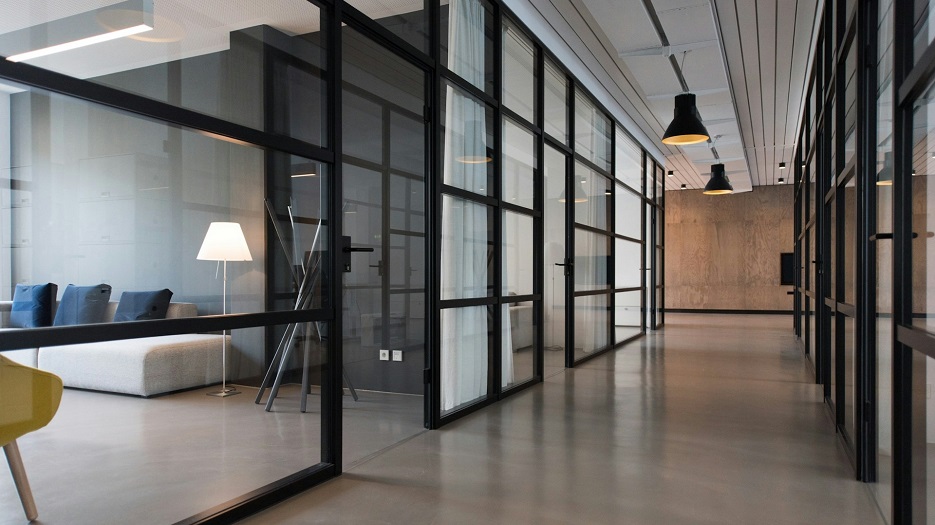Office Subleases: What Are the Pros & Cons and Risk?

There has been a global wave of vacant office spaces, because in today's rapidly changing world, businesses are facing challenges such as economic recession, workforce shortages, a global economic downturn, and the lasting impact of the pandemic. Taking Hong Kong as an example, the ratio of vacancies to available rental spaces has reportedly exceeded 15%1, reaching an all-time high.
In times like these, subleasing is one of the popular solutions. For those who own office space, subleasing part or all of it to another business can provide much-needed financial assistance, helping navigate these difficult times by reducing rental costs and improving cash flow. On the flip side, for those seeking office space, subleasing can spare them from long-term commitments and complicated rental agreements.
However, whether you're a sublessor or a sublessee, both parties must have a comprehensive understanding of the pros and cons of subleasing before committing to an agreement.
What is an office sublease?

A commercial sublease is a stand-alone agreement between an existing tenant (sublessor) and another party (sublessee) interested in occupying some or all of the space. Subleasing involves renting out part of your leased property to a third party, with the original tenant remaining responsible for all lease obligations.
However, subleasing has its challenges. Sublessors usually have other core businesses and may lack expertise in managing subleases. They might not prioritise subtenants as clients, leading to a less professional experience. Not only is there no dedicated salesperson and streamlined processes, but sublessees may also have limited freedom to customise the space or adapt it to their business needs.
In contrast, serviced offices offer a superior alternative to traditional subleasing. Compass Offices, for example, provides flexible and stylish office spaces across major Asia Pacific cities. Their services, including serviced offices, virtual offices, co-working spaces, meeting rooms, enterprise solutions and more, come with competitive rentals, utilities, maintenance, and amenities. Serviced offices are fully equipped with modern infrastructure and furniture, while the providers offers well-trained sales and service staff. They also welcome businesses to scale up or down according to their business needs.
By choosing flex serviced offices, you can avoid the potential downsides of traditional subleasing and enjoy professional service, inclusive amenities, and unmatched flexibility.
Advantages of Office Subleases: Flexibility and Savings
Have a look at how you can benefit from office subleases.

Cost Savings and Flexibility
Most people opt for office subleases to save costs and maintain flexibility. Subleases are typically more budget-friendly compared to standard commercial leases, making them a preferred choice for small businesses running on tight budgets. Moreover, subleasing allows you to pick and select the exact amount of space you need, avoiding excessive rental costs for unused areas. For those looking for 100-300sqft for their small business, there are plenty of options available in the sublease market. Besides, many subleased spaces are move-in ready, fully furnished and equipped, sparing you from expensive renovations or build-outs. This turnkey approach not only saves money but also ensures a hassle-free setup.
Simplicity and Accessibility
In most cases, office subleases are simpler and easier to apply and use than regular leases. Sublease agreements are often more straightforward compared to lengthy commercial leases, making them easier to understand and navigate. That being said, it's still important to have legal professionals review both the sublessor's lease and the sublease before signing. This ensures that all parties involved fully understand their rights and responsibilities, reducing the risk of legal complications down the line.
On the other hand, subleases may open up opportunities to access places that are not available as options for reasons such as full occupancy or high rent. Moreover, in general, sublease terms tend to be shorter than most traditional leases. This is because many tenants list their space on the sublease market after they realise they have excess space. As a result, sublease terms often need to coincide with the original lease terms.
Faster Move-in
Many subleased spaces are move-in ready, fully furnished, and equipped, sparing you the expense of renovations or build-outs. For instance, if an accountant wants to sublease unused space in their office to others, and the traditional office setting meets the new tenants' needs without major changes, the new sublessor can save on the heavy cost of building out the space. This turnkey approach not only saves money but also ensures a hassle-free setup.
Access To Previously Unavailable Space
Subleasing also opens doors to spaces that were once out of reach for businesses. The abundant sublease inventory can include locations in high-demand buildings that were fully leased or too costly under standard rental terms. For example, a company might have previously found their ideal location fully occupied or the rental rates prohibitively high. In a way, subleasing bypasses these barriers, offering access to desirable locations and facilities that were previously inaccessible, allowing businesses to position themselves in better spots in the market.
Disadvantages of Office Subleases: Risks and Challenges
Consider the risk and disadvantages when choosing an office sublease.

Zoning and Neighbouring Businesses
Office subleasing can come with drawbacks, including zoning concerns and the impact of neighbouring businesses. First and foremost, you should check the local zoning regulations to ensure that your type of business is allowed to sublease the space, as some places prohibit subletting to businesses that are already in the building or similar industries, in order to prevent unnecessary competition.
Consider the compatibility of your neighbouring businesses to avoid potential disruptions, too. For example, if you’re a marriage consultant, you’d want to stay away from loud noises next door during counselling sessions.
Subleasing might also limit your signage options, giving the impression of a smaller business. In this case, subleasing from professionals in the same field can help overcome this perception.
Restrictions on Space Customisation
Another disadvantage is the limited ability to customise the space. When you sublease, you are likely to be bounded by the customisation rules in the original lease, or you must go along with the existing fit-out. These rules dictate what you can do with the area, like decorating or moving things around. If you own a makeup brand, for instance, and wanted to paint the wall in pink to match your branding, you might find yourself unable to do so. Learn the limitations before making a decision, and evaluate how it affects you from creating the desired setup for your business.
Payment Defaults by Subtenant
Any contract inevitably comes with risks, and subleases are no exception. In a typical sublease, your sublessor is responsible for paying rent to the landlord or property manager. If your sublessor fails to fulfil their financial obligations, it can have a cascading effect on your sublease, potentially leading to eviction. It's not unheard of for sublessees to diligently pay rent to the sublessor, only to discover that the sublessor has neglected to pay their landlord, putting your sublease at risk. To protect yourself, include a clause in your sublease agreement that allows you to recover costs and damages if eviction occurs due to your sublessor's payment default.
Reliance on Sublessee's Rental Payments
On the flip side, it is risky for the sublessor to rely on the sublessee’s rental payments, because the sublessee can leave anytime, and you're stuck with the financial burden. You're still fully responsible for the rent and other obligations from the original lease. So, if the sublessee defaults or damages the place, you’re in trouble. If your rent depends on the sublease, it's a precarious situation.
On the other hand, damage clauses in the sublease usually favour the sublessee. Therefore, breaching a lease agreement when a sublease is in effect can expose the sublessor to the possibility of greater financial losses than it originally had.
Legal Aspects of Office Subleases: Know Your Rights

To protect your rights and interests, make sure that you understand the legal aspects of office subleases before sealing the deal. Begin by thoroughly reviewing your lease agreement, paying close attention to the terms and conditions to ensure that you're fully informed about your legal rights and responsibilities.
Sublessees, too, have their own set of legal obligations. These include meeting their commitments to both the sublessor and the property manager. Complying with these obligations is crucial to maintain a lawful and positive sublease relationship. Failure to do so can lead to legal complications.
Not to mention, as a rule of thumb, you should check the compliance with local laws and regulations. Different regions may have their own rules when it comes to subleasing. For instance, some cities might require specific subleasing permits. Failing to comply with local laws can result in legal issues and potential fines. Always consult with legal professionals or local authorities to ensure you're in full compliance.
Conclusion
Office subleases can be a two-sided coin. On one side, they allow both the sublessor and sublessees to save costs by utilising the space they need and sharing amenities. However, on the other side, subleases also carry risks, such as legal complexities, especially when one party heavily relies on the other. Evaluate and weigh these pros and cons carefully and fully understand your legal obligations before entering a sublease contract.
For a smarter and hassle-free choice, consider serviced offices like Compass Offices. Apart from benefits such as fully furnished spaces, top-notch services, and flexible terms tailored to your needs, their team is professionally trained to help you navigate the legal aspects of the contract and ensure compliance when renting with them. Reach out to discover how they can fulfil your workspace requirements.
Source(s):
1. Hong Kong’s Office Towers Have Never Been So Empty: https://www.bloomberg.com/news/articles/2023-06-05/hong-kong-real-estate-why-city-s-office-towers-are-so-empty#xj4y7vzkg





